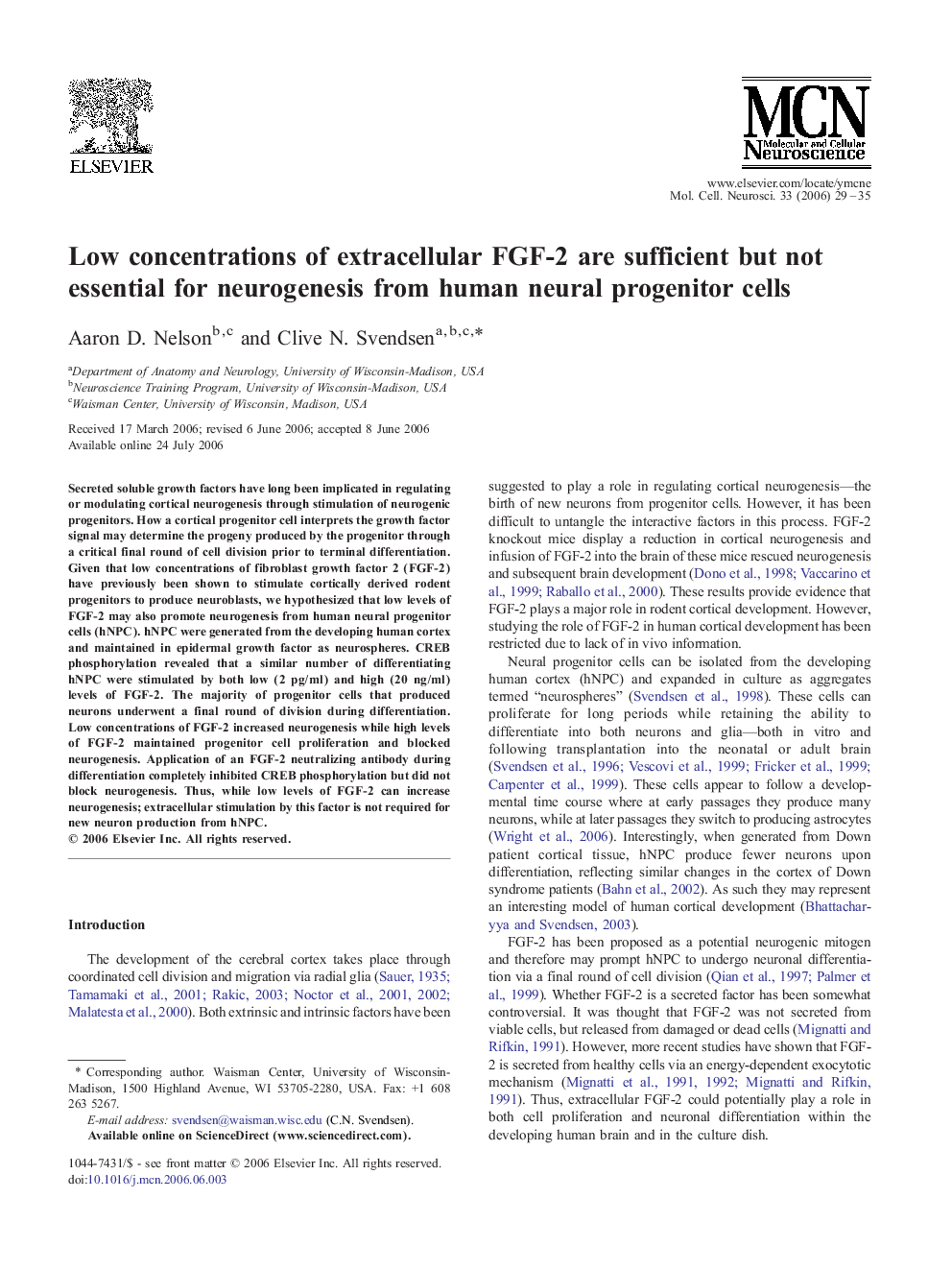| Article ID | Journal | Published Year | Pages | File Type |
|---|---|---|---|---|
| 10956753 | Molecular and Cellular Neuroscience | 2006 | 7 Pages |
Abstract
Secreted soluble growth factors have long been implicated in regulating or modulating cortical neurogenesis through stimulation of neurogenic progenitors. How a cortical progenitor cell interprets the growth factor signal may determine the progeny produced by the progenitor through a critical final round of cell division prior to terminal differentiation. Given that low concentrations of fibroblast growth factor 2 (FGF-2) have previously been shown to stimulate cortically derived rodent progenitors to produce neuroblasts, we hypothesized that low levels of FGF-2 may also promote neurogenesis from human neural progenitor cells (hNPC). hNPC were generated from the developing human cortex and maintained in epidermal growth factor as neurospheres. CREB phosphorylation revealed that a similar number of differentiating hNPC were stimulated by both low (2Â pg/ml) and high (20Â ng/ml) levels of FGF-2. The majority of progenitor cells that produced neurons underwent a final round of division during differentiation. Low concentrations of FGF-2 increased neurogenesis while high levels of FGF-2 maintained progenitor cell proliferation and blocked neurogenesis. Application of an FGF-2 neutralizing antibody during differentiation completely inhibited CREB phosphorylation but did not block neurogenesis. Thus, while low levels of FGF-2 can increase neurogenesis; extracellular stimulation by this factor is not required for new neuron production from hNPC.
Related Topics
Life Sciences
Biochemistry, Genetics and Molecular Biology
Cell Biology
Authors
Aaron D. Nelson, Clive N. Svendsen,
